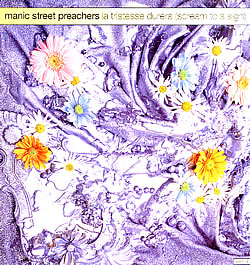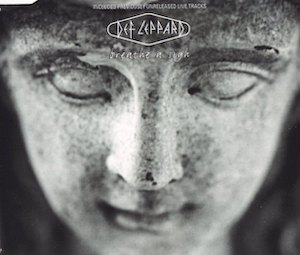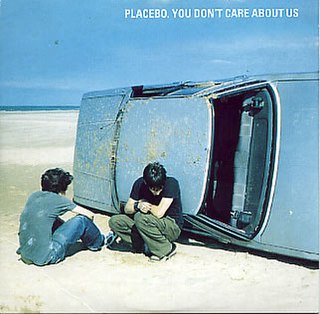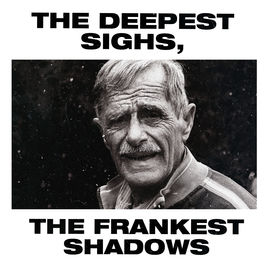
The Bridge of Sighs is a bridge in Venice, Italy. The enclosed bridge is made of white limestone, has windows with stone bars, passes over the Rio di Palazzo, and connects the New Prison to the interrogation rooms in the Doge's Palace. It was designed by Antonio Contino, whose uncle Antonio da Ponte designed the Rialto Bridge, and it was built in 1600.
Vigilantes of Love is a rock band fronted by Bill Mallonee with a large number of secondary players drawn from the musician pool in and around Athens, Georgia. In its later manifestations in the later 1990s and early 2000s, Mallonee usually sang, played lead and rhythm guitar and harmonica, although in earlier bands he played drums.

"La Tristesse Durera " is a song by Welsh rock band Manic Street Preachers. It was released in 1993 by record label Columbia as the second single from their second studio album Gold Against the Soul.

Skeletons in the Closet is a live album from the German power metal band Gamma Ray, released in 2003. It mostly featured songs that the band had never played live before. The setlist was voted by fans on the band's official website.

Imaginary Sonicscape is the fifth studio album by Japanese black metal band Sigh, released on July 4, 2001. Produced by Sigh, it was the band's first record released on Century Media Records. The musical styles of Imaginary Sonicscape further explored the experimental tendencies of the band's previous album Scenario IV: Dread Dreams with further psychedelic elements to the band's sound.

Hail Horror Hail is an album by the band Sigh. It was released by Cacophonous Records originally in 1997.

Gallows Gallery is an album by the band Sigh. It was released by Candlelight Records originally in 2005.

"Breathe a Sigh" is a 1996 song by English hard rock band Def Leppard from their album Slang. It peaked at #43 on the U.K. Singles Chart. The single was not accompanied with a music video. In reference to the song, lead singer Elliot said in the album's commentary that Breathe a Sigh is "a massive challenge for [him] to sing" and was "tried a lot of different ways [in the studio], but none of them ever seemed to do it any justice", so Def Leppard "stripped it right back" The song has not been played live since the Slang World Tour in 1997.

Sigh No More is the second studio album released by German power metal band, Gamma Ray in 1991 by Noise Records. Beginning a trend that would continue until their fifth studio release, the band's lineup changed from the previous album, with Uli Kusch replacing Mathias Burchardt on drums and Dirk Schlächter officially joining the band on guitars.

"You Don't Care About Us" is a single by British alternative rock band Placebo, taken as the second single from their second album, Without You I'm Nothing. It reached #5 in the UK Singles Chart. The video portrays the band being thrown one by one into a tank full of sharks while a group of children stand by and watch. The video was filmed at the London Aquarium and directed by John Hillcoat.

Love's Easy Tears is an EP by Scottish alternative rock band Cocteau Twins. It was released by 4AD in September 1986 as a 12" single, and was later re-released as a CD single with a fourth track, Orange Appled, included. It was the eighth EP released by the band, their last EP for 4AD, and their last EP until 1993's Snow.

"Almost Hear You Sigh" is a Grammy-nominated song by The Rolling Stones from their 1989 album Steel Wheels, written by Mick Jagger, Keith Richards, and Steve Jordan. The song was originally a contender for inclusion on Richards' first solo album, Talk Is Cheap, but he decided to play it for Jagger and Chris Kimsey the next year during recording sessions in Montserrat for the Steel Wheels album. With the exception of some lyrical alteration by Jagger, the composition was left in its original form. The single, which was released in January 1990 and was the third single released from Steel Wheels, charted as number 50 on the Billboard Hot 100 (US), reaching the slightly higher position of 31 in the UK, and placed number 1 on the US Mainstream Rock Tracks chart for one week. USA Today music critic Edna Gundersen praised the track, noting that the vocals of Jagger and Richards' guitar playing sounded the best on the slower tracks from the album, including "Almost Hear You Sigh."

Mumford & Sons are a British band formed in 2007. The band consists of Marcus Mumford, Ben Lovett, Winston Marshall and Ted Dwane.
Alessandro Morace is an Italian child actor.

Scenes from Hell is the eighth full-length studio album by the Japanese extreme metal band Sigh. It is the band's first full-length recording to feature Dr. Mikannibal. On October 15, 2009 the band posted the album cover and set January 19, 2010 as the official release date.
John DeNicola is an American songwriter and producer. He is best known for co-writing the song "(I've Had) The Time of My Life", for which he won both an Academy Award and a Golden Globe Award, as well as receiving a Grammy nomination, in 1988. In 1989 he was the co-winner of ASCAP Awards' "Most Performed Songs from Motion Pictures" for "Time of My Life" as well as for "Hungry Eyes", another song from the film. In addition to Dirty Dancing hits for Bill Medley, Jennifer Warnes and Eric Carmen, he has also written songs with and for Eddie Money, John Waite, Kristine W, Steve Holy, Jeannie Kendall, Sugar Jones, Annie Haslam, Bernie Worrell, The Sighs and Martin Briley.

"Faît Accompli" is the first single from the album Doppelgänger by alternative rock band Curve. It was released on 24 February 1992; it reached #22 in the UK singles chart, becoming their highest charting single in the UK. It was one of the first singles in the UK to reach the Top 40 without a release on 7" vinyl. "Faît Accompli" was included in the compilation Pubic Fruit, issued in 1992.

"The Deepest Sighs, the Frankest Shadows" is a song by Australian alternative rock band Gang of Youths, released in August 2017 as the fourth single from their second studio album Go Farther in Lightness (2017). The song peaked at number 93 on the ARIA Singles Chart, becoming the band's second top 100 single.
The Bridge of Sighs is a 1925 American drama film directed by Phil Rosen and written by Louis D. Lighton and Hope Loring. The film stars Dorothy Mackaill, Creighton Hale, Richard Tucker, Alec B. Francis, Ralph Lewis and Cliff Saum. The film was released by Warner Bros. on January 1, 1925.
















